Latest News
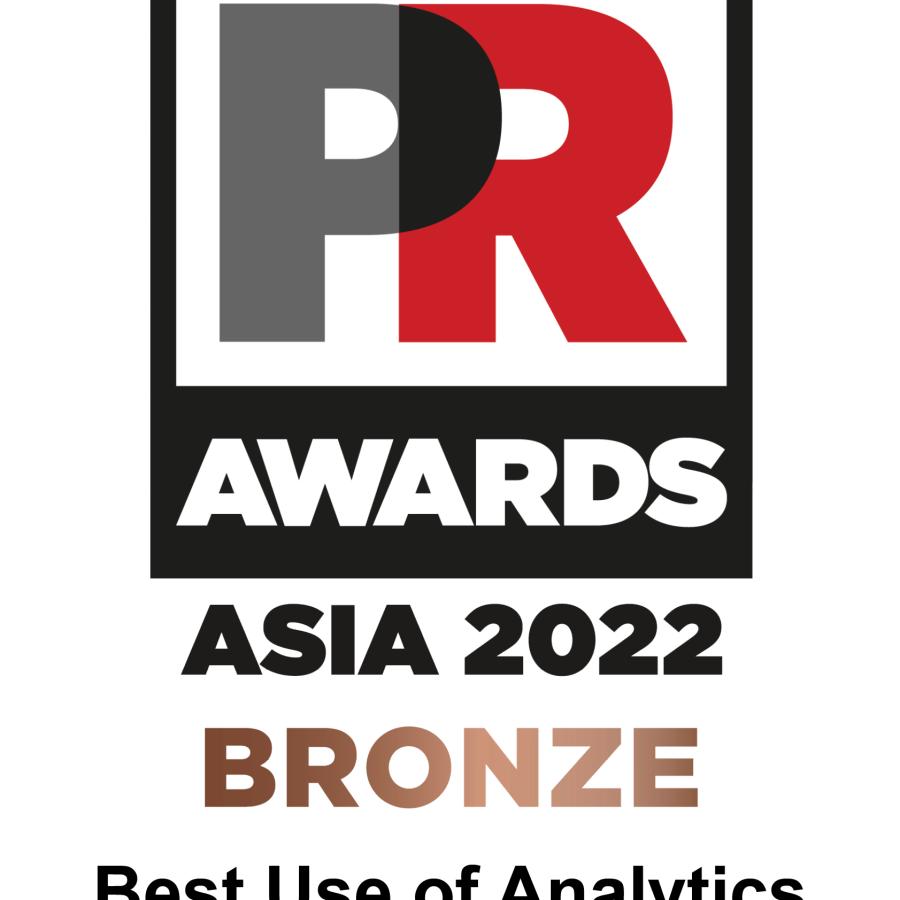

The EON Group’s Philippine Trust Index Wins Bronze at the PR Awards Asia 2022

EON is also the only firm in the country to be recognized across all categories this year by the award-giving body.
The EON Group, one of the largest independent, Filipino-owned, and award-winning integrated communications firms in the Philippines, wins Bronze for Best Use of Analytics at PRWeek and Campaign Asia’s PR Awards Asia 2022. EON’s entry, titled Measuring Filipinos’ Trust During a Pandemic, is based on its latest Philippine Trust Index (PTI), a proprietary nationwide research study that examines the country’s trust landscape and measures the levels and quality of trust Filipinos have for social institutions. EON has been producing this study biennially for the past decade.
The PTI is EON’s landmark project that capitalizes on data-centric intelligence and insights. For 2021, it used data gathered from a face-to-face nationwide study conducted from August to September 2021 among 800 respondents from different socio-economic and demographic backgrounds. It compared the findings with the Groundswell Report from EON’s Strategic Planning and Analytics unit, which used keywords to scan and gather online public conversations held between August 2020 and August 2021 and manually tagged them for expressing either trust, distrust, or a neutral sentiment in social institutions. By looking at the country’s trust landscape from both on-the-ground and online perspectives, the PTI 2021 was able to zero in on the factors that influenced public trust during the pandemic and provide context and nuance to them.
“We’re very happy to continue the EON tradition of championing Filipino excellence through substantive work that benefits every stakeholder whose success depends on trust,” says Malyn Molina, President and Chief Operating Officer of the EON Group. “As builders of trust, we will continue to monitor the country’s trust landscape and its dynamic movement across industries.”
In its commitment to foster trust among partners and stakeholders, EON has remodeled its scope of work and expanded its research and analytics services to serve as an industry pioneer in substantiating its innovative and creative work with data-driven perspectives. Its think tank and insights laboratory EON Trust Central leads the creation of data-mined white papers on various industries, changing consumer behavior, and social behavior with the help of a partnership with a market research company’s mobile app technology. Meanwhile, the firm’s Strategic Planning and Analytics unit produces reports on dominant and emerging online trends and sentiments by culling keyword mentions on social media and tagging their content for planners to flesh out data-based insights. These capabilities help synergize the different components of EON’s work and make its campaigns creative and effective.
“Recognitions for our industry-leading data intelligence practice are what tells us that we are on the right path. Our clients and audience can be sure that EON’s practices will only improve for the better from here on,” Molina adds.


The EON Group Wins Silver at Campaign Asia’s Philippines PR Agency of the Year 2021
The EON Group, one of the largest independent, Filipino-owned, and award-winning integrated communications firms in the Philippines, wins Silver at Campaign Asia’s Philippines PR Agency of the Year 2021. This is the third time EON has bagged a win at Campaign Asia’s prestigious awards since 2017.
Sticking to its singular purpose of building trust between its partners and stakeholders, EON continues to champion truth-telling and inspire leadership through its mantra for the year, “Rebuilding with Purpose.” EON believes that in order to rebuild the company, they must build trust by doing great work.
“Trust remains as the strongest tool for any company to recover from a crisis, and we made it a point to respond to the needs of our clients in terms of decision-making and policy development by remodeling our scope of work and stepping up our research and analytics services,” says Junie Del Mundo, Chief Executive of The EON Group.
EON also believes that the business’s greatest asset has always been its people. Working on a new company culture and offering flexibility through a hybrid workplace, growth opportunities, and psychological support are just a few of the things EON has rebuilt for the betterment of its employees.
“We now know that for people to thrive in this new work environment, the idea of ‘work-life’ balance must not be left to the employees to figure out on their own. It must be a belief system that the company stands by. We hope that this recognition inspires other agencies and their leaders as we continue to navigate and hope for a better year to come”.
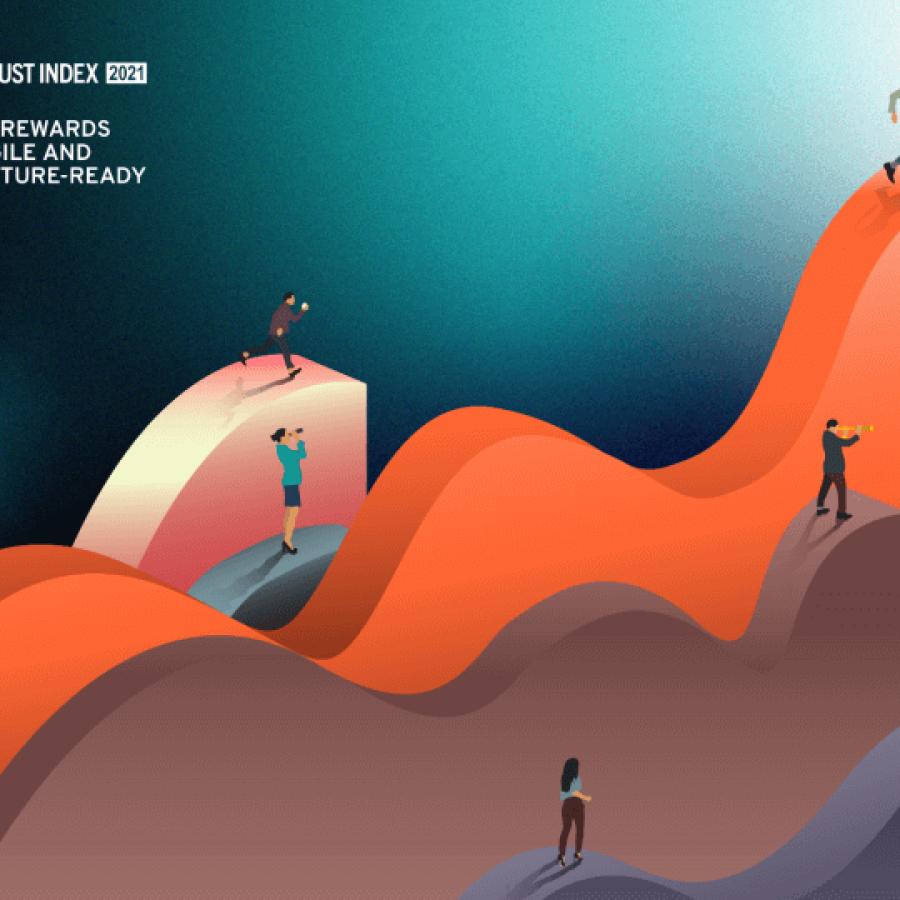

Trust Issues: Reflections on the Current Philippine Trust Landscape
In the book Building Trust: In Business, Politics, Relationships, and Life, American authors Robert Solomon and Fernando Flores assert that trust isn’t something that’s constantly present but is rather cultivated - an active and dynamic part of life. They also introduced the concepts of naive trust, which is easily broken, and authentic trust, which is “sophisticated, reflective, and possible to renew.”
This brings us to the topic of the Philippines’ trust landscape. Which institutions drive trust within the country? Is the trust they have built naive or authentic? How different is the trust landscape today compared to that of the pre-pandemic Philippines?
These questions and more were some of the points tackled last November 24 during the virtual launch of Rise and Respond: Trust Rewards the Agile and Future-Ready, the 2021 edition of the Philippine Trust Index (PTI). The PTI is communications firm EON Group’s biennial study that takes a picture of the country’s trust landscape, including the different factors that affect the Filipinos’ trust in six key institutions: the government, the business sector, the media, non-government organizations, the Church, and the academe.
The report presentation was followed by a panel discussion featuring experts representing each institution: Atty. Kristian Ablan, undersecretary at the Presidential Communications Operations Office and program director of the country’s Freedom of Information Program; Ruth Novales, VP for Corporate Affairs at Nestlé Philippines; journalist Camille Elemia; Atty. Gianna Montinola, co-founder of Hands On Manila; ABS-CBN chaplain Rev. Fr. Tito Caluag; and Dr. Jamil Paolo Francisco, the interim School Head of the Asian Institute of Management’s Stephen Zuellig Graduate School of Development and Management. The forum was moderated by sociologist Dr. Jayeel Cornelio who is also the director of Ateneo de Manila University’s Development Studies Program.
During the discussion, Ms. Elemia expressed relief in seeing the media’s increased trust level this year after the constant tirades that journalists had received pre-pandemic from the current administration, which undermined their credibility. However, she also recognized the media’s continuing challenge of providing accurate information 24/7 and the consistency with which it needs to do this to further increase public trust. This includes journalists judiciously selecting the stories to report on and avoiding sensationalist angles so that the public can focus on the stories that have actual implications on their lives.
When it came to the trust in the Church, Fr. Caluag observed how the institution has been able to maintain its high overall trust level while also seeing a decrease in extreme trust. As an institution whose work is based on faith, the reverend believes it’s not just the quantity but the quality of trust that it must nurture. He believes that the continued high trust in the Church is due to its leadership that works “tao-tao” or on a personal level to create an environment where members of the congregation feel cared for. However, he acknowledges the institution’s need to reinvent its traditional clerical structure of authority where a congregation often defers to a priest’s opinions. In his view, the Church must foster greater solidarity among its community, particularly among younger members who could be encouraged to participate more actively in its initiatives.
For his part, Dr. Francisco was glad to see that trust in the academe remains high since it is an institution whose work is about the search for the truth, even with the proliferation of so-called alternative channels of information. According to him, trust is a fundamental core of economic activity: People need to gauge first whether an institution such as the academe is trustworthy enough for them to engage (or continue to engage) with. He wondered, however, if the academe is communicating enough of what it does to the public, given the netizens’ mostly neutral sentiment for it and the millennials’ tempered trust in it. With upskilling a more crucial aspect now in an individual’s career rather than a degree, the educator stated that teaching is only one element of the academe’s job. Teachers must also help students generate their own ideas.
A big winner in this year’s trust landscape is the NGO sector, whose trust rating nearly doubled since 2019. Atty. Montinola described this spike as “a function of everybody’s work,” with NGOs mostly composed of volunteer members. Especially in light of organizations being used by “unscrupulous” individuals and groups in the past, the sector’s visibility during the pandemic has been part of its hard climb to earn back public trust. She also credits the multi-sectoral effort that went into the country’s pandemic relief since tending to the basic needs of Filipinos during the crisis is a task that cannot be fulfilled by only one institution.
Meanwhile, the government’s trust standing is a little more complicated. While the institution mostly maintained its 2019 trust level, its pandemic response has caused a negative change in the perception of its trustworthiness. For his part, Undersecretary Ablan took this dip in public trust in stride, saying that in light of what has happened in the past twenty months, the 2021 rating will serve as the government’s base rate so that it could work at raising it in the future.
Survey ratings for the most and least trusted government agencies were also presented, with the most trusted ones working in the sectors of education, aid distribution, and loan assistance. A question from the audience noted how the Department of Health didn’t appear in either list despite its critical role during the pandemic and the corruption allegations against it. The DOH’s trust rating actually declined from 85% in 2019 to 81% in 2021, which could be attributed to its alleged misuse of funds and the generally weak leadership it has shown in handling the Covid-19 pandemic. Still, while the Filipinos see these publicized issues as signs of failure, the DOH is more than just its secretary. It also includes the personnel who have been working on the frontlines and whose efforts were felt by the people on the ground. This could account for the department’s middle-level performance, with its trust and distrust levels canceling each other out.
With the business sector earning the lowest trust rating this year, Ms. Novales urged all industry players to work on leveling the playing field. Most businesses that had to close during the pandemic were micro, small, and medium enterprises, but as the Nestlé executive put it, the sector’s weakest link is also its biggest link since SMEs serve as suppliers to multinational corporations. She called for greater collaborations not just within the industry but with other institutions, especially the government, so that even SMEs can benefit from improved taxation and pricing policies. This way, businesses can continue to provide products to consumers and employment to the people even during a crisis, and thus earn back public trust.
Aside from the overview of the country’s trust landscape, the conversation also touched on its implications on the 2022 elections. To this, some of the panelists noted that the candidates’ respective pandemic responses and plans for moving forward will be assessed by Filipinos. Other issues that have also been critical in driving trust in the government, such as the economy and the protection of Philippine territories, will continue to be hot topics until election day, with voters studying each candidate’s platform for solutions to these concerns.
Since election season is also a time when various surveys are conducted, the question of the importance of trust ratings was asked. All of the panelists agree that surveys are helpful in providing the data they need to implement better programs for the public since they tell the story of the people’s experiences with these institutions. They inform stakeholders of how Filipinos perceive their performances and pinpoint the areas that need improvement.
Data from surveys also help institutions identify if there has been a communication gap. It provides a snapshot of which narratives are popular with the public and which ones have fallen through the cracks. Once stakeholders can see what the data is telling them, they can then fix what needs to be fixed. As Atty. Montinola said, almost everything now is about perception. With PTI being a perception survey, its results tell institutions where they need to better communicate authentic stories to combat both the lack of public awareness of their initiatives and the spread of misinformation.
The panel discussion at the 2021 PTI launch was a rich conversation filled with insights on the state of trust in the country. One of the biggest takeaways from it and the study is how the Filipinos’ personal experiences of each institution’s leadership and aid during the pandemic have shaped their trust. As the Philippines continues to work to recover from the crisis, our leaders in society must also strive to rebuild the trust they’ve lost and strengthen the trust that they have kept. After all, trust is dynamic and ever-evolving. It always opens up “new and unsought possibilities” for all of us.
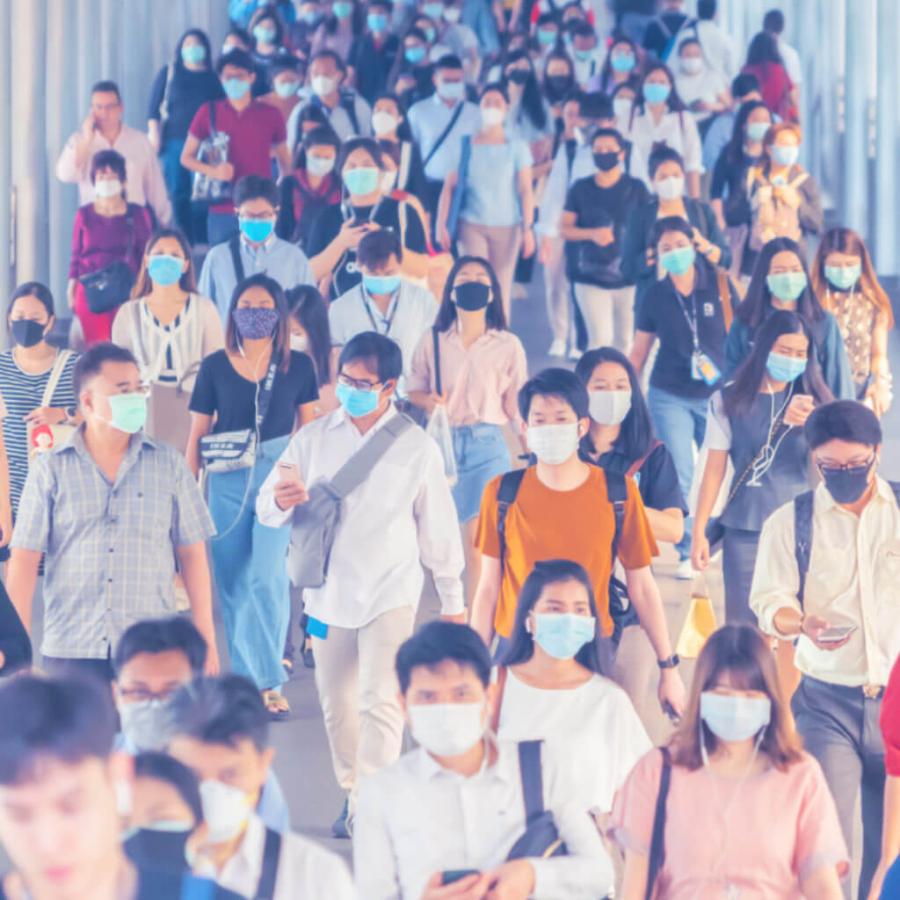

Staying Put, Looking Forward : Lessons from a Whirlwind 2020
2020 may very well be the longest year any of us have ever experienced, Filipinos of all walks of life were faced with new adversities, many of which remain unresolved as we approach 2021’s halfway point. Nevertheless, changes brought about by the Covid-19 pandemic also brought about new forms of creativity, accountability, and connectivity, with many Filipinos embracing the new aspects of our circumstances. With scientists working on medical solutions, we have a responsibility to create solutions in our own respective industries for our own respective stakeholders.
In order to create these solutions, comprehensive understanding of how drastically society has been changed is critical. To learn how Filipinos feel about a rollercoaster year, EON conducted a nationwide survey, "Quarantine@1: A Look Into the Status of the Filipinos." This survey asked 6,000 Filipinos across the country about what has changed for the better and for the worse since the first set of lockdowns in March last year, interrogating respondents on what new systems have benefited their lifestyles as well as which gaps have endured or even widened. A summary of the findings of this research follows, which we hope will inform the decisions of those in positions of power toward making a “better normal” as sustainable as possible.

We begin with the obvious - the country has emerged from a year of quarantine consumed with feelings of sadness, fear, and regret over the state of affairs. While respondents note a vast number of changes to their routine since March 2020, the majority cite the inability to leave the house as a key difference, with many Filipinos frustrated at how physical restrictions have impacted the ability to attend mass or hang out in shopping malls. Still, Filipinos demonstrate their ability to make the best out of unpredictable situations, with many sharing the tremendous role which family support has played from both a psychosocial and financial angle. Though Filipinos lament their newly limited mobility, their fears center over the health and protection of their family, with more respondents afraid their loved ones will catch Covid-19 than afraid of the pandemic’s impact on their work and livelihood.
This is not to say that Filipinos are not feeling the impact of Covid-19 on their finances. On the contrary: a clear majority note that expenses have risen due to the pandemic and that frugal living has been essential. Of the Filipinos surveyed who confirmed their debt, a majority express desire to work harder, but many also indicate they are simply unable to pay lenders back and are out of options. Potential solutions to financial issues manifest in social media, with many confirming that financial constraints owing to the pandemic have inspired new interest in setting up online businesses. Still, while we can’t say for sure if Covid-19 is the only cause of our financial distress, we can definitely state that it did not help anyone’s situation.
In sifting through the data the Filipino people have provided us, we see that issues are just as comprehensive as the efforts our people utilize to solve them. When asked how to move forward, Filipinos reveal that they are anything but single-issue thinkers. Respondent sentiments run a considerable gamut, with Filipinos calling on the government to do away with corruption, calling on the business community to create more jobs, and calling on one another to be vigilant about one another’s safety. It is clear to the people that fixing one crack in our broken system is not enough: respondents stress the importance of financial literacy, thorough research on political candidates, and proper hygiene. The diversity of issues and solutions raised by those who engaged in our research sends a powerful message: Filipinos are keenly aware of the world around them, and are not shy at all to share what they believe it takes to make 2021 more prosperous than the year which preceded it.
With so many dimensions to the pandemic, the question begs of what is to be done. I would argue first that the average Juan dela Cruz is already doing all they can. Our research shows that Filipinos have utilized a variety of coping mechanisms for each of the issues brought about by this pandemic, whether it’s immersion in social media to pass the time confined at home or whether it’s exploring online business opportunities to make up for economic shortfalls. It is also quite clear from what respondents have said that Filipinos comply as diligently as possible with safety protocols and urge their countrymen to maintain the same standard. I would thus hesitate to continue messaging which attributes our issues to a lack of discipline. The people work with what they are given, and for many it has only been enough to survive.

For those of us privileged enough to worry more about quarterly financial projections than when barangay assistance will arrive, I implore you all to demonstrate empathy to your employees like never before. Too many business leaders have used Covid-19 as an opportunity to showcase their ability to pivot in the face of crisis; too few have indicated efforts to connect to the deep emotional and physical wounds afflicting their staff. The data makes the overwhelming hopelessness washing over our countrymen quite clear, and while many commit to working even harder to make a living, this resilience should not come at the cost of mental and spiritual stability. If we cannot be there for the people who make our businesses operate on a daily basis, we cannot call ourselves successful business leaders.
Lastly, truth in messaging is non-negotiable, whether leading a company, organization, or political movement. Innovations brought about by the pandemic have afforded the public greater accessibility to their leaders, with social media tearing away the walls separating decision-makers from their constituents. The importance of meaning what you say - and doing it soon after you say it - cannot be overstated at a time where so many of us are losing loved ones at a rapid pace. Tensions have never been this high and the consequences of this “better normal” have been chillingly real for too many of our kababayan. We owe it to ourselves as leaders to advocate for truth, guide those who follow us on the right path, and strive in all that we do to empower and safeguard the Filipino from misinformation. I hope readers will rise to this call-to-action and look forward to the collaborations which will strengthen our country in the days to come.
To get the full report of the “Quarantine@1: A Look Into the Status of the Filipinos" by EON’s Trust Central team, please email info@eon.com.ph.
This article was previously published in the MAP Insights column of BusinessWorld last April 26, 2021.
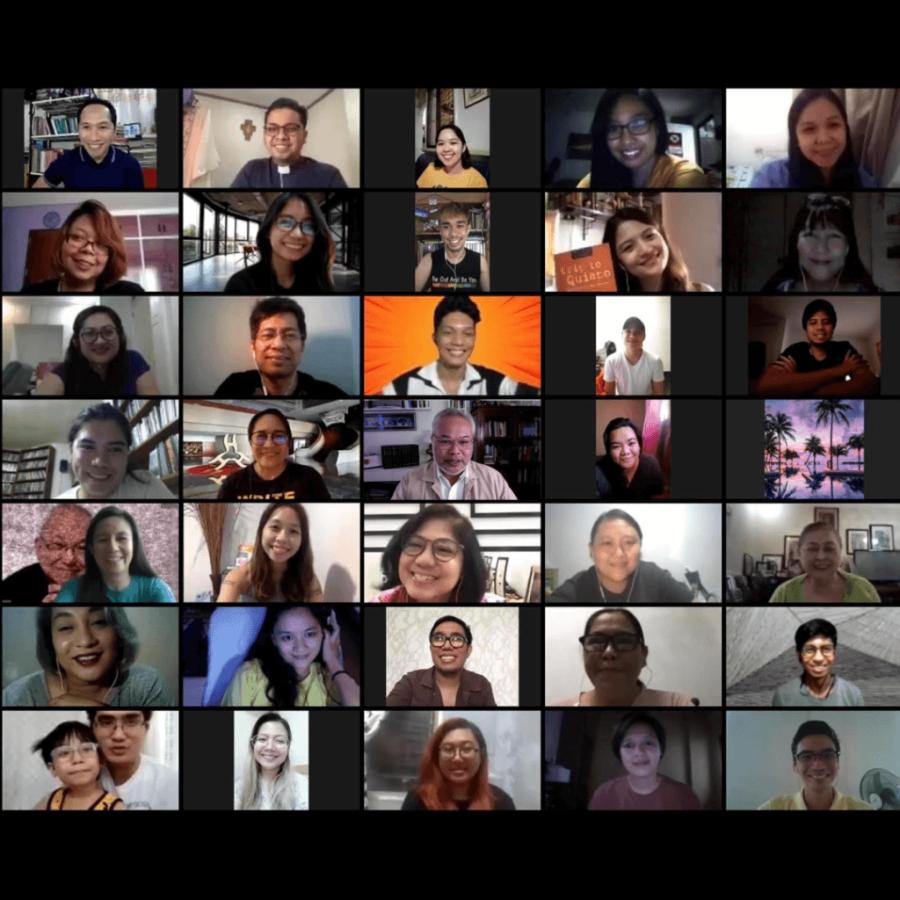

Cinemalaya: Snapshots of Success
Since its inception in 2005, Cinemalaya has grown in size and impact to become synonymous with the independent filmmaking movement in the Philippines. With the onset of the pandemic in March 2020, its effect on the arts led many to question whether Cinemalaya could maintain its status as an entertainment industry trailblazer. Yet through skillful navigation of the latest technology, the team behind Cinemalaya proved unwavering in their resolve, harnessing the digital platform so the show could go on as it must.
Cinemalaya and the 2020 challenge
With a vision of bringing to light the works of Filipino filmmakers who boldly articulate and freely interpret the Philippine experience with fresh insight and artistic integrity, the Cinemalaya Philippine Independent Film Festival was born in 2005 under the care of the Cultural Center of the Philippines (CCP). More than just a competition, the festival offers a seed grant every year to ten fresh Filipino talents to create their films. These ten full-length films along with ten short films under the Short Feature Category compete for the festival’s top awards. Aside from the competing films, a well-curated list of old, new and restored films are also shown in exhibition in addition to the multitude of film-related activities such as talkback sessions with filmmakers, seminars and mini conferences. All these make up the exciting lineup of Cinemalaya activities traditionally held in CCP every August.
However, the arrival of Covid-19 in 2020 and a strict Enhanced Community Quarantine (ECQ) enforced in March through May, brought about a halt in film and video production. And despite the lifting of the ECQ in May, there remained restrictions for film production as well as a strict limit on the number of people who may be present on the set. Thus, the daunting challenges involved with mounting a full-length film production endured, and the question arose whether Cinemalaya could continue to invigorate audiences in a whirlwind year.

Quick turnaround to shift viewing to digital
To ensure that the 2020 festival would not be canceled completely, it was imperative for the Cinemalaya team to think quickly and strategically. Luckily, they had a reference to work from: the Virgin Labfest had previously gone digital via Vimeo to great success, indicating that following suit with an online Cinemalaya could create similar magic, even amidst the fragmented internet viewing and Video on Demand industry. With a source of inspiration - and the proposed launch date for the festival only a few weeks away - the Cinemalaya team decided to give the go signal. The team began compiling movies both from submissions and partners alike, gradually shifting their focus to short films for the festival’s competition and diversifying sections sourced by Cinemalaya’s Programming Team.
Building on an existing strong brand legacy
The team was initially unsure on how to price their offering given the highly competitive VOD market. Comparisons to Netflix were abundant and the shorter time period of the festival seemed to put it at a disadvantage. But given the strong brand legacy of Cinemalaya, not just among cinephiles but also from a strong following among students and Filipino moviegoers of all ages that has been built across the years because of the quality content they churn out, Cinemalaya definitely had a place in the market and pockets of its fans and fulfilled a demand that can’t be filled by other festivals or movie platforms.
Tiering their offerings allowed flexibility for the film buffs considering their different budgets and viewing appetite. This strategy was successful as evidenced by the most expensive tier being availed the most by viewers, backed by their strong content offering.

Taking advantage of the Cinemalaya Library of Content
On top of building on their strong brand legacy, Cinemalaya 2020 also took advantage of the wide library of content they already had, coming from the previous 15 years of the successful staging of the festival. Cinemalaya frequently receives requests for reruns of its most famous and well-loved movies, adding these to the available content for viewing this year under the “Retrospective” section and making these accessible to Premium subscribers gave audiences a more compelling reason to pay and subscribe.
Movies like Ang Pagdadalaga ni Maximo Oliveros and Ang Babae sa Septic Tank, which were so successful in penetrating the movie viewing Filipino audience were once again available for fans and new festival-goers to view at their own time.
Maximizing partnerships to bring content to more Filipinos
With only a short time to prepare due to unforeseen circumstances, it would have been quite a challenge for any organization to quickly build up its own infrastructure. However, Cinemalaya was able to pull it off with the right partners. Taking off from the success of Virgin Labfest, Cinemalaya and CCP took the learnings that they had gained and continued their partnership with Vimeo to bring the festival to life.
Having faced the common challenges of signing-up and payment during the Virgin Labfest, the Cinemalaya team knew the types of content and responses that they had to be ready with to ensure greater success and a higher conversion rate.
Aside from Vimeo, Cinemalaya’s openness also resulted in a partnership with Kumu and iWant TFC that brought the festival to Filipinos and fans everywhere. Cinemalaya had already started to reach the provinces in previous editions with various mall partnerships but going digital allowed them to reach even more fans from abroad and those from smaller cities outside Metro Manila. The additional partnerships also lengthened the time available for fans, both old and new, to view the festival’s content. The initial festival was available exclusively on Vimeo while the iWant TFC partnership sustained the interest and allowed Cinemalaya to gain additional exposure and revenue even post-festival.
The partnerships were not limited to only platform partners but included the network of film organizations within Asia and beyond, allowing them to screen foreign films under the section Visions of Asia curated by the Network for the Promotion of Asian Cinema (NETPAC). This added further value and made the subscription packages even more enticing.
Targeting future filmmakers, Cinemalaya also leveraged its existing relationships with directors for Talkback sessions and even held a Masterclass hosted by renowned screenwriter Ricky Lee, thus further adding value to the online experience and making sure that the festival lived up to its full potential.
With all these combined, Cinemalaya is now ready for 2021 whatever the situation may be. They are currently considering a hybrid model if the situation allows for both on-ground viewing in CCP and partner movie cinemas to happen simultaneously with the digital screenings where they have had a lot of learnings, but they also recognize the possibility of having everything still on digital with the confidence that Cinemalaya will surely be able to surpass its unprecedented success in 2020.
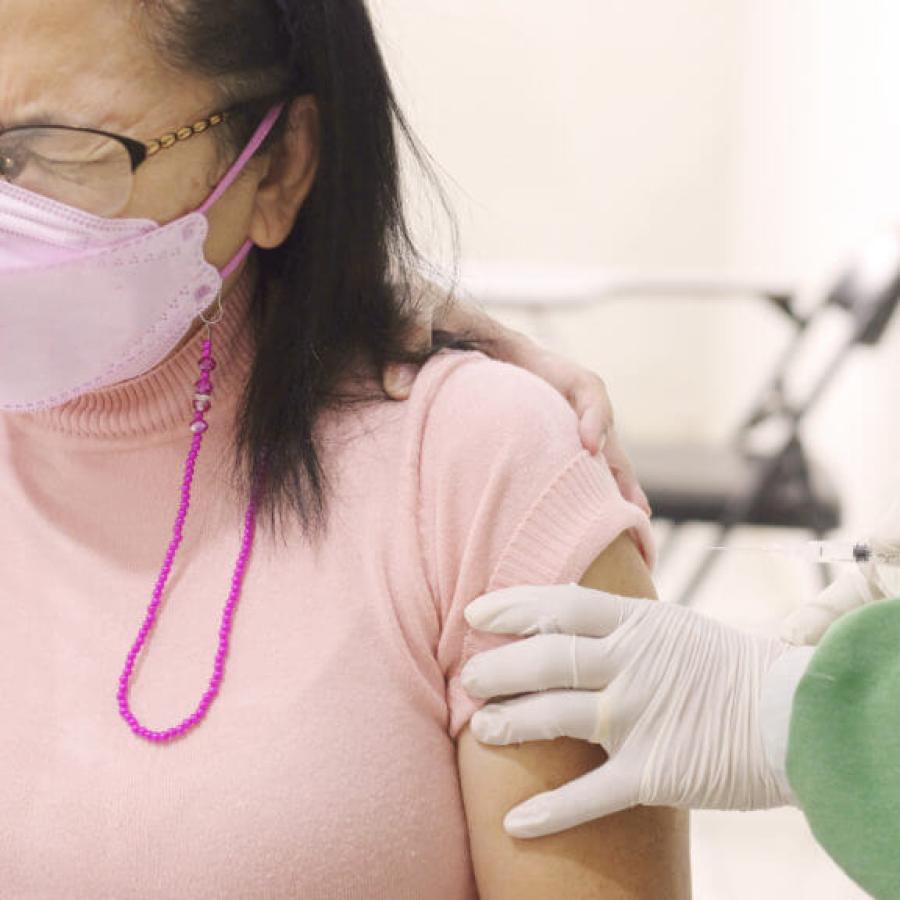

A Look into Public Sentiments on COVID-19 Vaccines
With public and private institutions coming together to combat the spread of COVID-19 across the globe, the question begs: how will this work in the Philippines? The race to end the pandemic takes on a different route in a country like ours. Resentment over the Dengvaxia controversy lingers, and the channels our health institutions use to communicate are cluttered.

Voices Behind the Vaccine
As the national rollout plan comes into sight, EON, together with its research partner Tangere, uncovered public sentiments on the vaccines through Tangere’s mobile research application. Over 4,400 Filipinos were surveyed on their knowledge and perceptions on the developing vaccination program. These are a few things that we learned:
Filipinos are Willing Learners
While information out there might be insufficient, it is to be noted that there seems to be an overwhelming majority that report trust in the sources of their knowledge. They also demonstrate a desire to learn more about everything from side effects and proper dosage to the process of vaccine development and rollout. This shows that there is a need to grow education on the vaccines across a variety of channels and formats.

There is a Reluctance to Participate
But with the unknown comes uncertainty, something that can be seen with the majority of Filipinos who do not feel ready to be vaccinated. Though many understand the value of vaccines, most express apprehension over potential side effects and skepticism over the legitimacy of procurement processes. With the lack of transparency fueling the hesitations, what then can be done to move Filipinos from unease to confidence?

Trust Remains Within Small Circles
The answer to this question is our third insight. While more information will help the most, results also indicate that assurances from a trusted member of one’s circle weigh more heavily than those from health professionals. We are then presented with a conundrum: despite high trust in healthcare institutions, social networks dominate in their ability to influence.
A Call for Better Leadership
With these in mind, EON proposes three key strategies:
Clarity First. We must expand messaging so that Filipinos are equipped with all the facts they need to ease their fears.
Pool Your Knowledge. Those tasked with the responsibility of sharing information must harness all available channels, striking a balance between traditional communication and social media.
Let Them Lead. The development of an influencer network is imperative. Thought leaders can vouch for the vaccines’ safety and harness their influence toward enabling a strong movement of Filipinos who are educated on their health and prepared to safeguard it for generations to come.
To get the full report of the "Sentiments on COVID-19 Vaccines Baseline Study" by EON's Trust Central team, please email info@eon.com.ph.
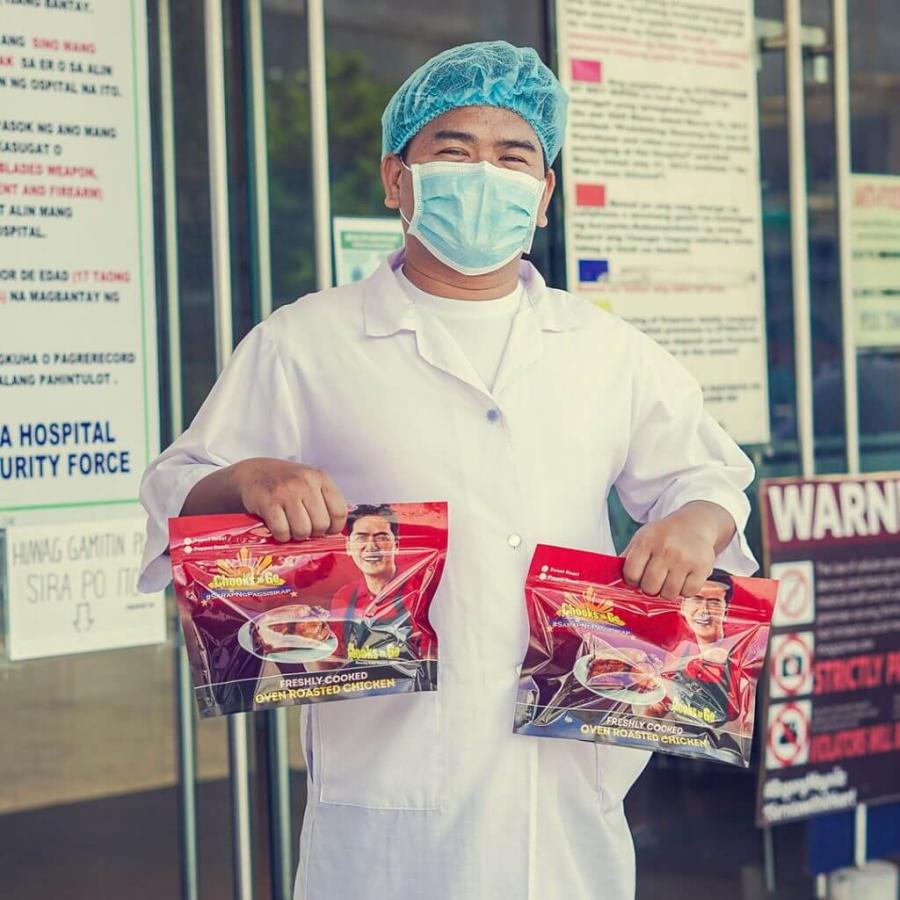

Feeding a Country under Lockdown: Tales of Grit and Agility
Crisis situations can bring out either the best or the worst in an organization. This duality is what many organizations in the Philippines faced when COVID-19 spread across the globe and reached local shores in early March 2020. The lockdown that was imposed on March 15 immediately disrupted business operations, limiting the movement of people and goods, restricting the provision of services and disrupting the supply chain for what is one of the most essential for survival – food.
The operations of Bounty Agro Ventures, Inc. (BAVI) is spread throughout the archipelago. When the lockdown was imposed, just like in many other companies, its leadership team was shaken by the sudden changes. But the company, known for its patriotic advocacy promoting Puso para Pilipinas, is led by a team that has grown accustomed to the challenges of live poultry operations in a country that is visited annually by at least 20 typhoons of varying strengths. They are men and women whose character have been strengthened by the many battles they have had to fight against mother nature.
BAVI today is a strong, growing and competitive enterprise. But it wasn’t always that way. When it began operations in 2002 as a poultry integrator, it was a virtually unknown, fledgling enterprise struggling to survive in the highly competitive and volatile Philippine poultry market. It started as a seller of live and dressed chicken, both commodities that were vulnerable to market fluctuations and multinational competitors. In 2008, however, BAVI took a brave step forward to complete the integration of their operations and reach its consumers directly by selling oven roasted chicken under the brand Chooks to Go. This further enlarged the company’s footprint in the food industry.
RESPONSE TO THE LOCKDOWN
All Hands on Deck. When the lockdown was imposed shutting down BAVI’s traditional trade channels, its president Ronald Mascariñas issued a call for “all hands on deck” through his Facebook account. The speed at which the entire workforce responded in unison to the call to adjust and change course amazed even the employees themselves. A pandemic was certainly not in their Business Continuity Plan, yet they all raised their hands to support whatever next steps the company may need to take moving forward just to survive.
Quick Pivot: Rolling Stores. Although initially caught flat footed by the spread of COVID-19 into the country and the closure of public transportation that severely limited mobility and people’s access to traditional trade routes, the company was able to tweak its distribution system by tapping its own people. At this point, the BAVI employees did not have a detailed plan to follow. They did not have grand goals to meet. All that kept them moving forward was the thought of helping communities stave off hunger by ensuring food security. So they organized themselves into small teams, assigned each team their respective service areas, and rolled out their chicken stores, bayanihan style, to where these were most needed.
Office-based employees ventured out in the field to sell chicken. People in frontline roles liaised with local governments to deploy rolling stores to fill the gaps where felt. With customers’ access to food shops blocked by road restrictions, these small teams spread out across the country, visiting villages, both rural and posh, crossing bridges and rice paddies, loading their cars, trucks and small boats with chicken to fill the gaps in the food supply chain that were created by the community quarantine.
Their initial efforts allowed them to reach over 2,000 communities nationwide in just a few weeks. Despite the challenges on the road and the new roles that they had to assume, everyone remained focused and encouraged by the constant recognition and appreciation that came from their customers as well as their top leaders, most of which were relayed through the Facebook account of their president.
Value Creation: Reseller Program. As the pandemic continued to spread across the country, restrictions on mobility see-sawed depending on the gravity of the exposure to the virus. Recognizing that the impact of COVID-19 on the economy could persist for a longer period, BAVI sought to normalize its rolling stores by transforming these into a Reseller Program where consumers themselves could become resellers in their own communities. This has gained over 10,000 applicants, is on track to reach the target of 100,000 resellers, and is now poised to become one of BAVI’s strongest trade channels of the future with its wider reach and expanded product portfolio.
Saving Jobs. The pandemic has pushed the nation’s jobless rate to an unprecedented high of close to 18 percent but not a single BAVI employee has been laid off. In addition to providing much needed livelihood to thousands of families, the Reseller Program has also led to additional headcount in BAVI to support the new trade channel.
RECIPE FOR AGILITY
Empowered and Inspiring Leaders. One way to transform a crisis into an opportunity is to always be ready to respond quickly. For organizations, this means having leaders with well-honed management skills, a strategic view of the business and the trust and respect of their employees, that allow them to swiftly redirect their people and priorities toward value-creating opportunities whenever disruptions arise.
Imbued with the entrepreneurial mindset like that of their founders, BAVI’s Business Center leaders are empowered by their president to make independent decisions on the ground in support of shared corporate goals. Strategic objectives are shared across the organization during leadership meetings and are owned by members of each business center.
Having led his people through many challenges since its founding in 2002, BAVI’s president, Ronald Mascariñas, has earned the trust and respect of his teams. Known for his charismatic and down to earth ways, he was able to inspire his 1,000 employees to take care not only of themselves and their families but also the local communities around them, by reimagining the way they deliver their products to their customers. The same character traits that combine business savvy with heart are echoed among the other leaders in the organization.
Highly Skilled and Organized Teams. Right from the start, BAVI’s founders always believed that the company’s greatest asset is its people. While at first they struggled to find a balance between business viability and employee well-being, they soon realized that there is no such balance, but rather a cause and effect. Business viability is a consequence of employee well-being.
At the heart of BAVI are its people so they have invested heavily in engaging their teams and equipping them with technical, leadership and communication skills, equivalent to as much as 6-months salary, through the BAVI Academy, an in-house training unit that offers a full menu of programs for its employees all year round. To round off their communication skills, BAVI sponsored 13 Toastmasters Clubs in areas where they operate which now count a third of its employees as members. With the focus that they have put on people development, BAVI has been recognized by Investors in People with a Gold Accreditation, a feat that only a few organizations attain.
Shared Values. Love of country is a value shared by BAVI employees. This is clearly manifested in the tagline that they have adopted and by which they live by - Puso para sa Pilipinas and the advocacy programs that they have supported over time. Malasakit, bayanihan and volunteerism naturally follow. But this grit and agility with compassion did not just develop overnight. The character and integrity to rally together, survive a catastrophe, help the community, and feed thousands, are the outcomes of a process through time that is deliberate and persistent.
To develop a culture of involvement within the organization, BAVI has launched its Inclusion Program which involves providing employment to persons with disabilities, supporting the national basketball team, both 3x3 and on wheelchairs, as well as the Special Olympics Philippines. Volunteerism is also strongly encouraged in the company to develop empathy among its employees. This was evident when the lockdown was imposed and BAVI personnel volunteered to provide food to front-liners as well as students and travelers stranded by the lockdown.
Clear Communications
Three days after the lockdown was enforced, when normal operations were halted in many of its business units, and confusion and uncertainty were at their peak, Mr. Mascariñas emailed, then posted on his FB wall, the first of his “do not fear” letters to all employees, recognizing the crisis, acknowledging their fears and committing to see them and their families through it all. His messages reverberated throughout the organization and mobilized employees to help plan and execute BAVI's responses to the crisis. In the coming days, he followed through with detailed plans and instructions, updates and encouragement, letting them know that they are appreciate.
With his passionate support for the national sport of basketball, he has become a folk hero to many. With 1.25 million followers on Facebook, he has been able to tap social media to send out his messages quickly across the BAVI family and to mobilize them for both business activities and advocacies that are consistent with their corporate values.
The acid test of BAVI’s strength as an organization is in the way it responded to the pandemic. After nine months of quarantine restrictions, BAVI employees only expected to survive at best, but the company actually emerged stronger and more diversified than it was before. Having invested in its people and their welfare, the company was well placed to tap into their strengths when the crisis came, and the returns are multiplied as they have been well equipped to support not just the company but also the communities where they live during these unprecedented times. As BAVI’s leaders always say, “we take good care of our chicken, but we take better care of our people.” With such strong foundations, they were able to quickly rally their teams to help feed a nation in lockdown.
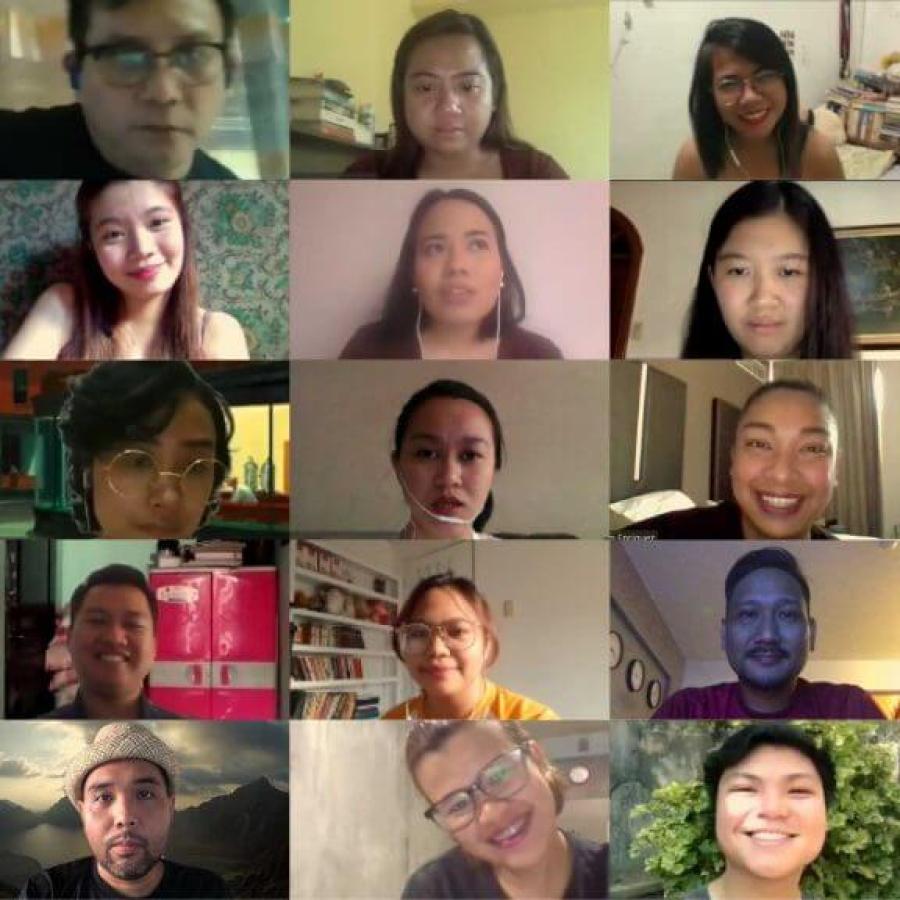

TRUST: The Most Stable ‘Currency’ in the COVID Crisis and Recovery
The rise of COVID 19 from a ‘crisis-to-watch’ back in late November 2019 to a global pandemic that got every country into a virtual lockdown, is nothing short of meteoric. The world’s economy fell in doldrums with businesses (except for a handful) struggling with almost non-existent operations, disrupted supply chains and an unprecedented surge or drop in demand that were not even in any planning scenario. We are all caught flat-footed in this continuously evolving threat, at a loss as to what will come next, not knowing where to start our business continuity and recovery efforts.
The COVID 19 pandemic is redefining many aspects of the society, the environment and the world. It is revealing vulnerabilities of both public and private institutions, and in sharp contrast, showing the strengths of communities, families and individuals to come together and ‘save the day’. We see heightened activities in the social media that has become a potent ‘microphone’ for the people to say what they think and feel; and how this platform is being used to amplify the message that the governed should have influence over the decisions and actions of those who govern. Trust has become the most stable ‘currency’ that institutions must have in huge reserve to engage stakeholders.
The acceptance or rejection of the behavior, actions and policies adopted by the government and the business organizations depend on how well they are trusted to deliver on what was promised. People are looking closely not at just the plans, but how well these are implemented; not just at the pronouncements or press releases but what their networks’ – families, friends, co-employees, communities – testimonials are. The talk must be the walk.
Therein lies the challenge. Because trust is a critical factor in crisis, its presence constitutes a major capital for organizations and leaders, one that can be leveraged on to bounce back and recover faster in the aftermath. Conversely, it’s absence will dictate how long a time they will need to regain lost ground, if they survive at all.
How are the actions increasing or decreasing the trust reserves? Ligo and Coca-Cola are two known brands who have reallocated their entire advertising budget for COVID-19 relief operations, winning the approval of audiences. Companies who are showing compassion to their employees by coming to their assistance at this time of need are perceived more favorably than those who are announcing plans to lay off workers. Airlines are winning and losing by the policies they adopt on cancellations and refunds.
There are LGUs that are stepping up and providing creative solutions to provide access to food and transportation; and the people responded by coming to the rescue of these trusted leaders, protecting them from political repercussions. In contrast, we also witness how the political shine of other local leaders dimmed because of lack of trust that they can deliver.
Communication to stakeholders has become a critical component in trust-building. Credible, transparent and reliable information are the best defenses to lies, fear, anxiety and wrong perceptions. Because the medium is the message, it is vital that leaders and organizations pay equal importance to both content and the one tasked to deliver this, to ensure that the narrative covers all the touchpoints – not just with data and numbers, but also with emotions. Proper communication cannot be left to chance; it requires insights, empathy, critical thinking and discipline to strike a note that will swing the trust pendulum in the right direction.
Finally, we must not be afraid to say that we do not have all the answers and that we can commit mistakes. Transparency is a must if we are to build a trust-based relationship with our stakeholders.
Gaining the trust of our stakeholders takes time. It adds up with every action that shows how we put the customers first by giving them their money’s worth; by how we improve their experience with every complaint they report; by how well we treat our employees; by the importance we place for purpose, not just profit; and by our concern for environment, sustainability and governance.
Communication is the bridge that connects what we do to build this trust, the stakeholders we need to build relationships with, and to society in general.
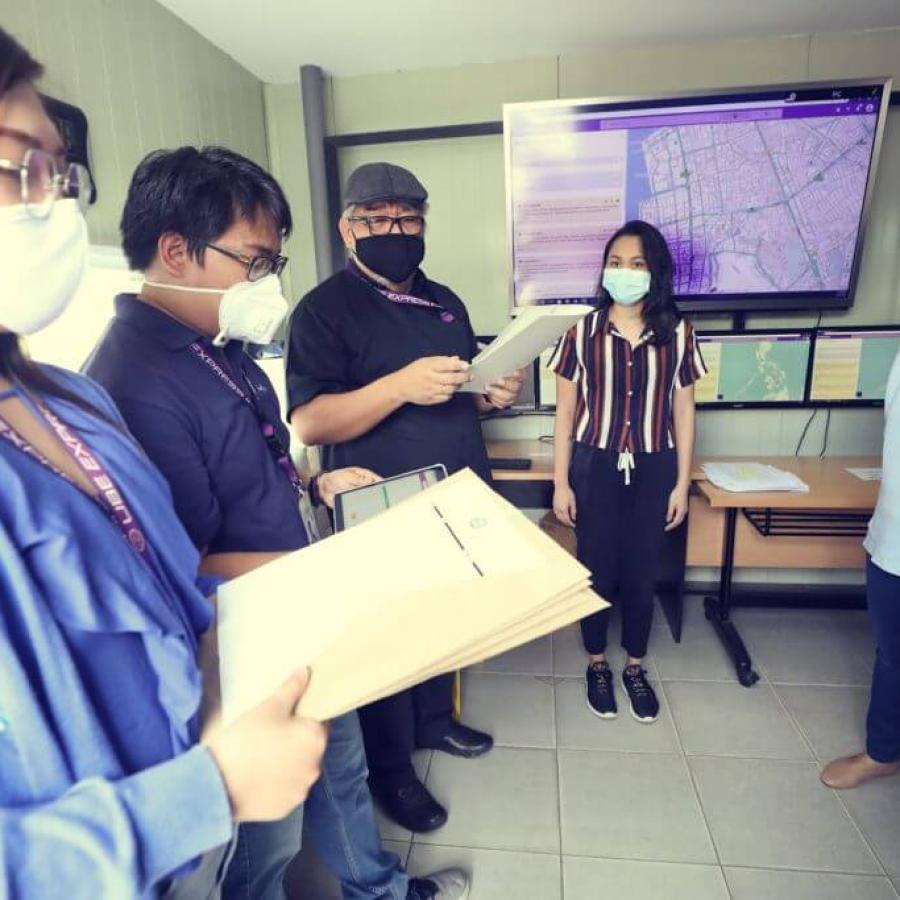

How Leaders Can Carry Our Nation Through This Pandemic
For leaders in both the public and private sector, this is our moment of truth. In a matter of weeks, the COVID-19 pandemic has completely eroded our notion of normalcy. Businesses are suffocating with ceased operations, disrupted supply chains, and an unprecedented surge or drop in demand for which nobody has adequately prepared. When our management team sat down to create EON's COVID-19 business continuity plan in early March, the sheer scale and unprecedented nature of this crisis meant we had no one to look to who can say they have "been there, done that." So we chose to rely on our human instincts and our expertise as communicators. We find ourselves grappling with a multitude of questions to which we don't have concrete answers. How might we ensure business agility and productivity to survive this crisis? How might we play a more valuable role in our customers' lives given the current situation? But also, how can we continue to provide ourselves, our loved ones, and perhaps even our own people with the most basic necessities of modern life, such as food and proper healthcare? By mid-March, all leaders were thrust onto a tightrope, balancing the need between maintaining economic and organizational stability and protecting the health and safety of their people. If the last few weeks have taught us anything about leadership, it's that people need to come first in our decision-making processes, whether they are our employees, our customers, or anyone in our supply chain. This entails a mindset shift in the way we communicate and act: crisis should be seen as proactive reputation enhancement over reactive reputation defense. In this global health crisis, never has efficient and coordinated communication been more critical, and people are looking to brands to provide exactly that. Vice President Leni Robredo paid a surprise visit to partners, volunteers, and drivers of her office's Free Shuttle Service for Frontliners What Makes a COVID-19 Leader? Qualities for Effective Crisis Communication Transparency. During these uncertain times, we saw the importance of speaking up early and truthfully with accurate information. With COVID-19, transparency is no longer a mere selling point to attract more discerning audiences-- it is now vital to our survival as a society. Employees, clients, suppliers, and constituents need to be informed, so they can act accordingly and take necessary precautions to mitigate the spread of infection. Empathy. During the early days of the Community Quarantine, the online space started lashing out at influencers who berated Filipinos for refusing to stay home, called COVID-19 a 'blessing', and brushed off the quarantine as a chance for people to stay home and watch Netflix. Many have called them out for being insensitive and privileged towards those who can't afford to stay home -- our "no work, no pay" Filipinos. As leaders, we need to be able to understand the different perspectives of our stakeholders and their anxieties around COVID-19, in order for us to determine how we can play a more valuable role in their lives today. Decisiveness. When we help our clients manage crises, we always tell them, "You cannot control what happens to you, but you can control what to do about it." During a crisis, what we can control is how to communicate both internally and externally. In the case of COVID-19, we are expected to act and communicate quickly. Learn how to deal with imperfect information during times of crisis and not be crippled by it. By being decisive and providing quick solutions and next steps to our stakeholders, not only do we help them gain a sense of control over their respective situations and mitigate the spread of fear and panic, we also reinforce the value of our brand. Agility. There are no silver-bullet solutions in the face of a 21st century pandemic, more so the one we are facing today. Providing quick, preventive solutions is expected upon leaders, and with it, comes an understanding that many mistakes will inevitably be made. Lapses in judgment and errors will eventually be forgiven, as long as we remain upfront with our audiences and we use our learnings to bounce back with agility. The Philippines is still finding its footing as the number of cases continues to rise exponentially. How can leaders actively utilize communication today, to manage a crisis that is still getting worse before it gets better? Vice President Leni Robredo inspects her office’s repacking, sorting, and testing area for locally produced protective suits on Tuesday, April 21, 2020. A. Activate your purpose. Go back to your organization's raison d'etre, key strengths and offerings, and channel them into messages and efforts that show how you continue to create value, help those in need, or take part in ending the epidemic. In the last couple of weeks, we have seen these proactive and purposeful efforts from both the private and the public sectors. Ligo and Coca-Cola are two known brands who have reallocated their entire advertising budget for COVID-19 relief operations, winning the approval of audiences. LGUs are stepping up and getting inspiration from one another on creative solutions to ensure access to food and transportation for their constituents. Even small businesses such as restaurants and fashion studios are using their talents to help provide food for our frontliners and design PPEs to address supply shortage. B. Stay engaged with your customers. The whole process of communicating during a crisis is fluid. Customer needs can shift dramatically during crises such as this one, often from the rational to the emotional, and it is important for organizations to intercept that shift. In crafting new initiatives or promotions, be prudent in making sure these aren't seen as attempts to capitalize on a crisis or undermine public health efforts, but reinforce a message of solidarity with customers. Agencies need to stay relevant to their clients during these challenging times. Our role as consultants in a volatile and unpredictable environment is critical in ensuring that business for our clients thrives when conditions improve and, more importantly, that their reputation is protected throughout the entire journey, by helping them navigate turbulent waters through tools and capabilities that make the trade of communicators crisis-proof. C. Prepare for the New Normal. We don't yet know when, but when this pandemic is over, things will run quickly, and our world will not go back to the way it was. Now is the time for all your organization's key leads to discuss how this pandemic might affect your business holistically-- how measures of productivity might have changed in a Work-From-Home setup, how customer behaviors and expectations subsequently shift following this month-long quarantine, and how the public might return to their daily routines with a renewed cautiousness about the actions and intentions of personalities and brands. COVID-19 has made this much clear: the dogmas of brands and individuals alike are put to the test once the going gets tough. There is no better time to demonstrate what you stand for as an individual and as an organization. Using your expertise or brand capital to help during this crisis is not about commercial advantage or profit. Rather, it is about cementing your reputation and showing your true corporate values and citizenship to help society. Do your COVID-19 communications -- and more importantly, your actions -- truly reflect the purpose you have voiced out? Are you truly doing your part in bringing the Bayanihan spirit to life, and inspiring the same in your stakeholders? As leaders, it is also our duty to empower our stakeholders to channel this spirit and get through this crisis together. After all, it is the people who make an organization, populate a community and —make no mistake about it — build a nation.

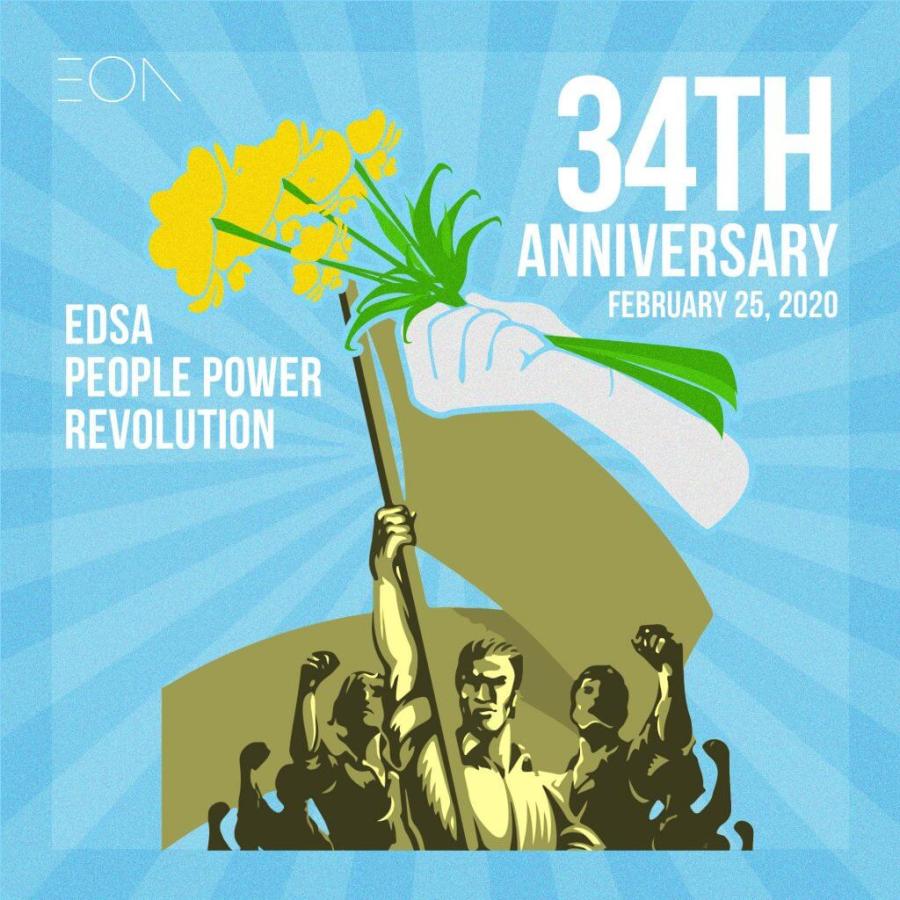

PINOY POWER: How the Unique Filipino Identity Sparked a New Kind of Revolution
This year marks the 34th anniversary of the EDSA People Power. Filipinos have shown the world the true power of democracy. This was the time in our history where opposing ends met, where soldiers and civilians shook hands despite the Proclamation, and where Muslims and Christians marched together. This was the time when their identity as Filipinos is the only thing that mattered. They did not only hope for freedom, they took action. EON has captured the Filipino essence in Four C’s—caring, colorful, creative, and collaborative. These represent a unique fusion that is authentic to Filipino heritage and set of values which lie at the core of People Power. Filipinos are generally engaged and highly-relational people. We easily empathize, especially with our culture of bayanihan. As a people with an instinct for caring for others, not only towards their country but the welfare of their countrymen, we realized the first nonviolent revolution that ever took place. We redefined the idea of a revolution. This further underlines our creativity—in distinct Pinoy fashion, we revolted with songs, rosaries, and flowers against guns and military weapons. With these actions, not only did we surprise the world with our peaceful protest, we inspired other countries across the world to do the same. The diversity of the Filipino people signifies how principally colorful we are, not only with our festivities but in our capability to unite to fight for democracy—regardless of religion, age, or class. The People Power Revolution also brought to life Filipinos’ collaborative nature and its almost magical effects of driving societal change. The support shown by Filipinos across the country proved that a single ideology or aspiration strongly supported by heart as one nation can drive progress that cannot be cut short by mere physical distance. In our celebration of this year’s People Power, we recognize the inherent power of the Pinoy. Our indomitable spirit has shown a strength that made it possible to weather through trials and enact change for the better. In trying times, this is worth keeping in mind. It's the people that make a nation, and it is, indeed, the creative, collaborative, caring, and colorful Filipino that makes this nation worth fighting for. Maligayang pagdiriwang at mabuhay tayong lahat!
